Maybe it’s Charleston’s size, about 140,000 people. A small group of determined people can make a big difference in a city that size. Maybe it’s a legacy of the Civil War, which left so many women fending for themselves. Or maybe it’s just the fact that Charleston is a sophisticated city with strong educational, cultural and philanthropic institutions, areas in which American women have traditionally held influence.
Whatever the reason, Charleston prides itself on being a place that fosters powerful women—in the areas above, as well as in business, medicine, manufacturing and more. Here are just eight examples of the women who help make Charleston one of the country’s most dynamic cities.
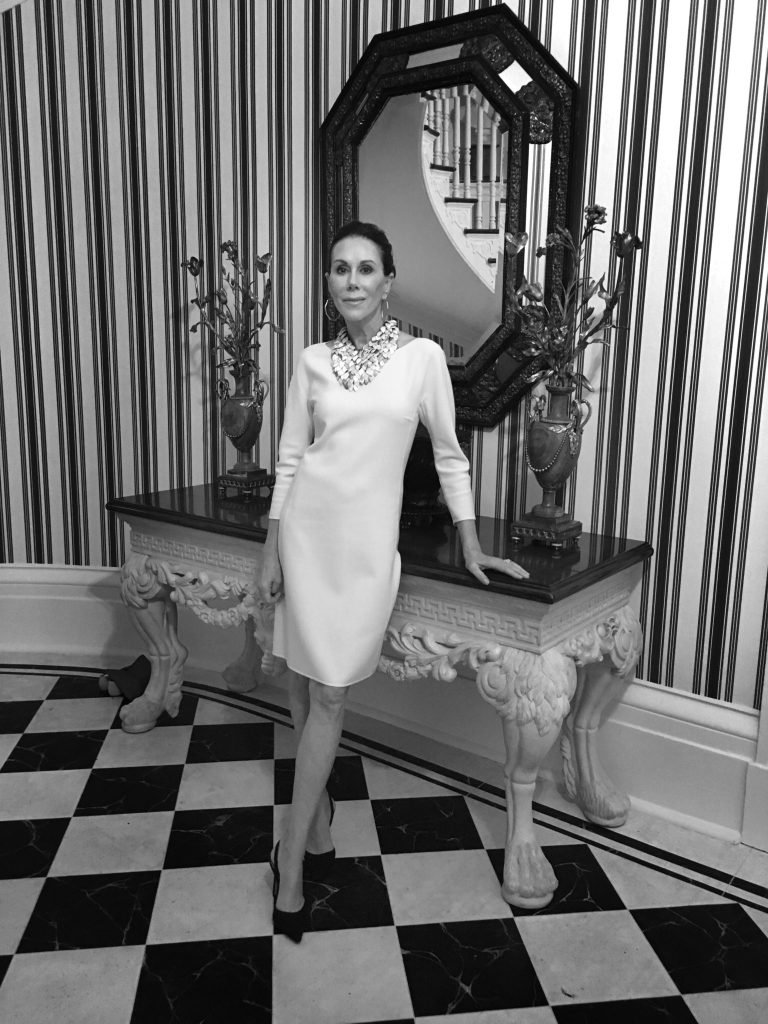
Carolyne Roehm
Author, businesswoman, designer
How She Got There: “My book, A Passion for Blue and White, was out, and I got an invitation from the Gibbes Museum of Art to come and give a talk. I thought, This is a sign. I saw a house [for sale]—a Greek revival with a big beautiful oak—and I said, ‘This is the one I want.’ My mother said, ‘Oh no, you don’t need another house.’ But it’s a dream.”
Why Charleston? “I wanted to live someplace that had architectural beauty, that had a sense of history, and I’ve always liked the South—a lot of my clients, whether from my clothes or my websites or my books, are from the South. These women still believe in a certain level of civility. They like to dress, they like the home. I thought, This combination is just Charleston.”
“I wanted to live someplace that had architectural beauty.”
How She Gives Back: “I love to do interiors and the house is pretty good-looking inside, if I do say so myself. When you’ve done something like that and you’re the new kid on the block, every charitable group wants to hold an event there. I’ve done Historic Charleston and the Library Society and the Gibbes and Spoleto. I don’t have tons of money to give anymore, so they have to get me as a laborer.”
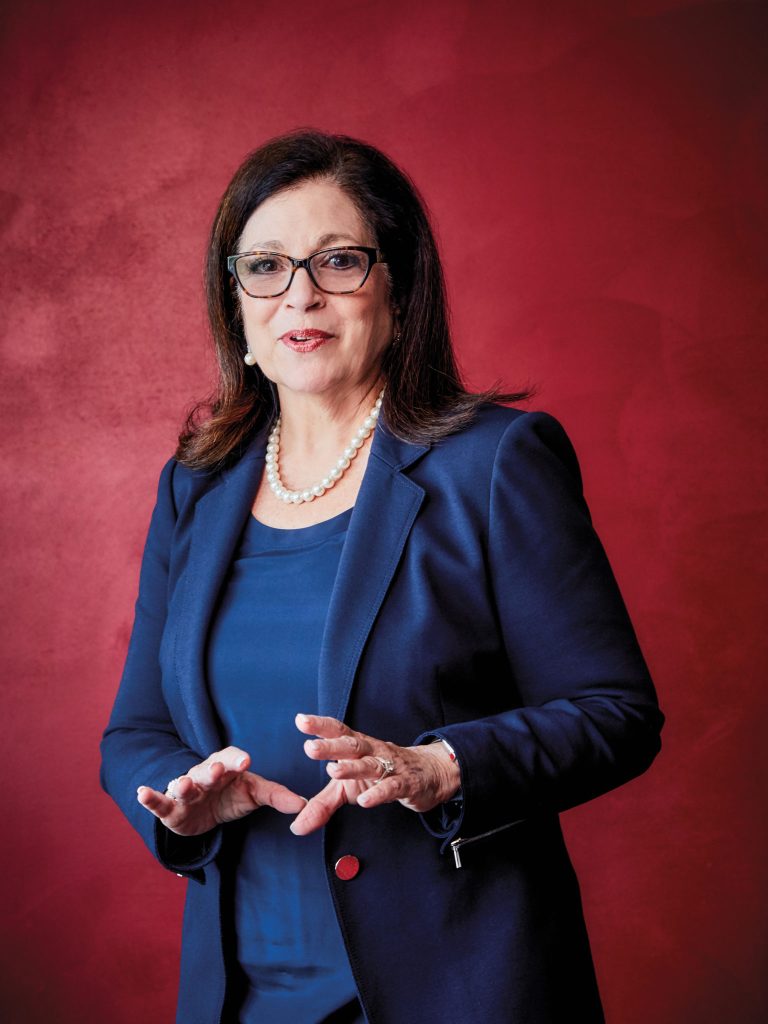
Anita Zucker
Chair and CEO, the InterTech Group, a multinational company with holdings in aerospace, chemicals, entertainment, finance, manufacturing and real estate
How She Got There: “I came to Charleston with my husband, Jerry, in 1978. I got a job offer—I was a teacher—that made sense. And we were looking for a Jewish community, and Charleston has one that’s wonderful. In 1982 my husband decided to buy his first big business, and after that we started the InterTech Group.” Zucker took over leadership of the InterTech Group after her husband’s death from cancer in 2008.
Why Charleston? “It’s been 40 years since I’ve moved here, and I’m thrilled to be here. It’s amazing to watch this city transform, and to be a part of it.”
How She Gives Back: It’s hard to find a regional philanthropy or civic group she hasn’t been involved with, but Zucker is particularly devoted to medical research, childhood education and women’s advancement. “I came into leadership through loss,” she says. “I was thrust into a new role. But I’ve done everything in my power to educate myself and I’ve worked really hard to prove that women can do this. That’s what I’m fighting for.”
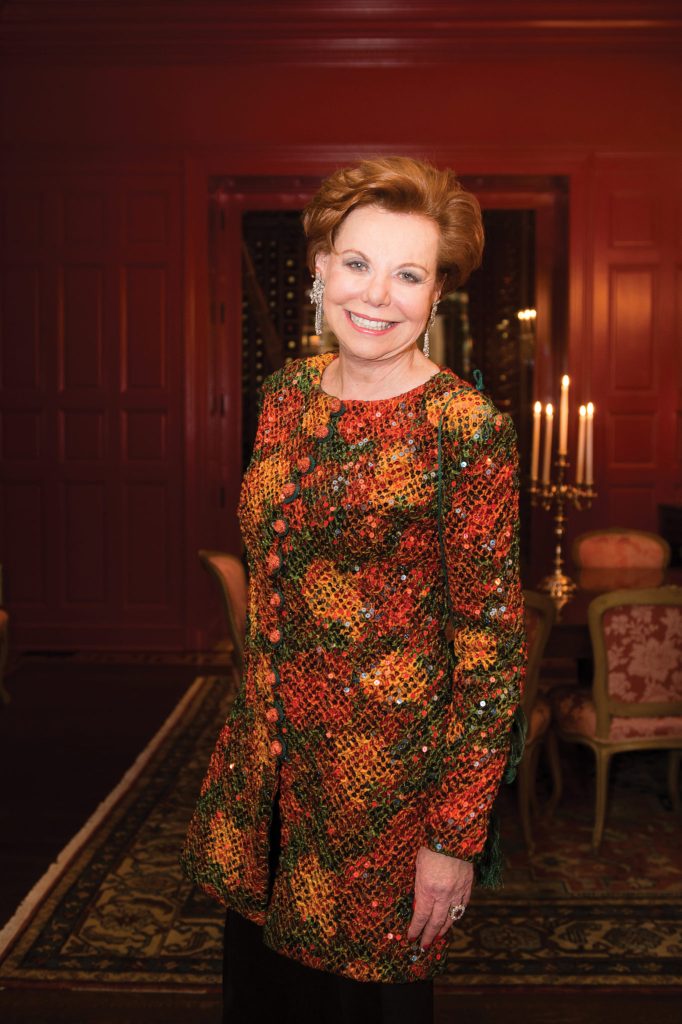
Lou Hammond
Founder, Lou Hammond Group, a public relations company
How She Got There: “I came to Charleston originally, in 1999, because you could buy an 18th-century house here. That seems like a silly thing, but it’s the truth. My husband, Chris, and I came down on a Saturday and on Monday we owned a house. I just loved the city, the ability to meet interesting people, people who care, the commitments to charities.”
Why Charleston? “Women are true partners in business in Charleston. I’m a woman who works in a company and have been extremely welcomed as a member of the business community. It’s just never brought up. You’re an executive doing a job.”
How She Gives Back: Hammond is one of the organizers of a small group of women, which includes Helen Hill and Katarina Fjording, who gather to talk about work and life. Inspired by Volvo’s Fjording, they jokingly call themselves the “Hot Rods.” She also serves on the boards of the Medical University of South Carolina Foundation, the Gibbes Museum of Art, Spoleto Festival and the Lowcountry Chapter of the American Red Cross.
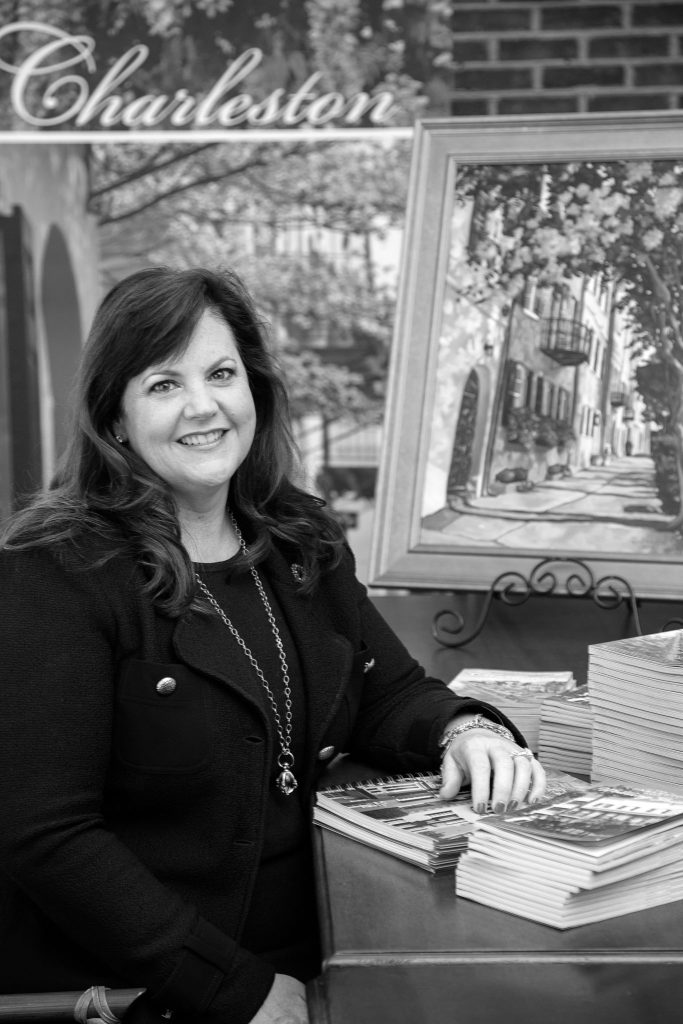
Helen Hill
CEO, Charleston Area Convention and Visitors Bureau
How She Got There: A Charleston native, Hill attended Ashley Hall school and Clemson University. In 1986, she started working at the Charleston Area Convention and Visitors Bureau, and became its executive director in 1989. Hill is widely recognized as instrumental in transforming Charleston into one of the country’s most popular and admired destinations.
Why Charleston? “I can truthfully say that in Charleston, South Carolina, I’ve never been discriminated against because I was a woman. I feel like Charleston gentlemen are the ones who always thought their daughters could do anything.”
How She Gives Back: Hill talks much more comfortably about Charleston than about her own achievements, but the truth is they are inseparable. She is a hub of activity, a source of knowledge and experience, and a connector, for women in particular. “I hope I’ve been an inspiration,” Hill says.
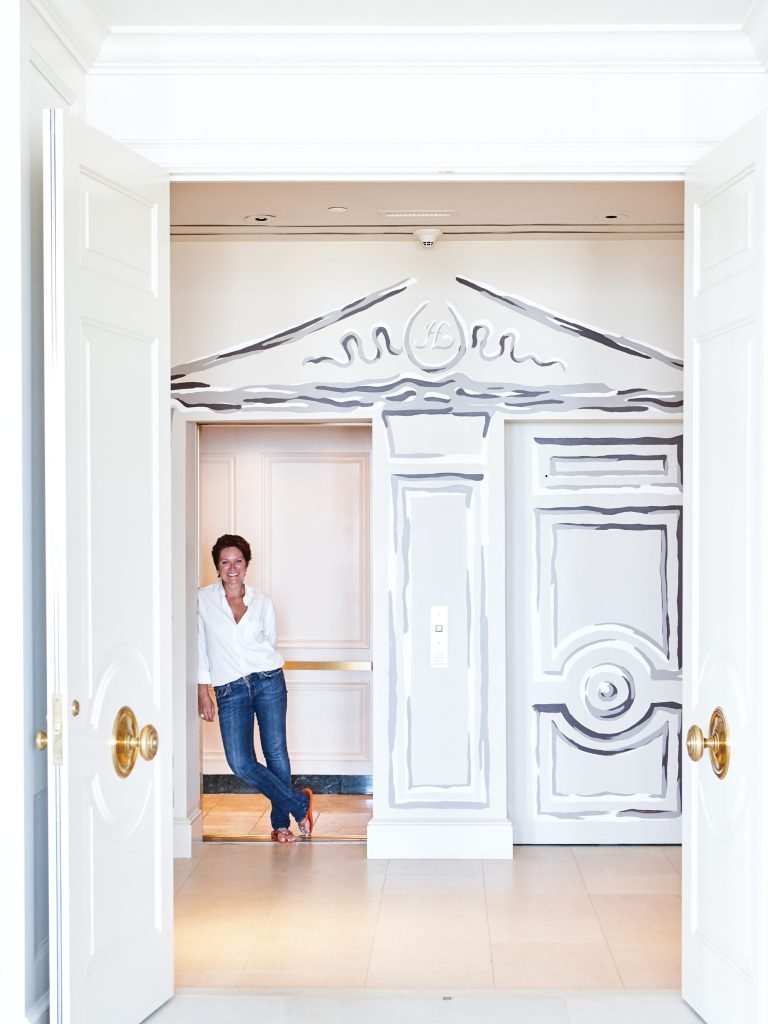
Terri Henning
Real estate investor
How She Got There: “I moved here in 1999. I was working for McDonald’s corporation doing acquisition and site selection for them, and I married a man, Ed Henning, who lived here in Charleston—he was a McDonald’s franchisee. That’s how we met.”
Why Charleston? “In July of 2001, before our second wedding anniversary, I lost Ed in a motorcycle accident. And I didn’t even know if I would stay in Charleston. I didn’t have family here…I just thought, I have to work through things, and then I’ll decide. But when the fog started to lift, probably a year and a half after he had passed, I realized that I loved Charleston. It was the first time that I ever felt that I had belonged somewhere.”
“I loved Charleston. It was the first time that I ever felt that I belonged somewhere.”
How She Gives Back: Henning regularly hosts benefits at her 7,500-square-foot duplex on Broad Street, and she has been a major contributor to Charleston’s MUSC Children’s hospital. But for her, philanthropy means engaging one-on-one, as with the young women she mentors in a drug rehabilitation program called the Bridge. “Mentoring someone isn’t difficult,” she says. “But those little things make a difference in our community. They make changes.”
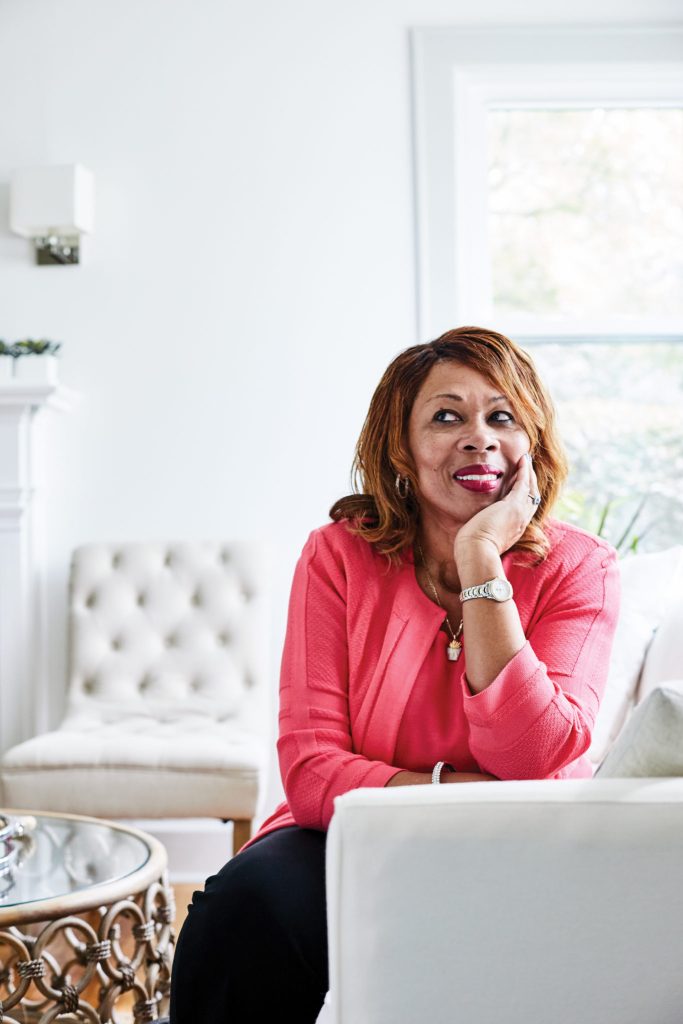
Carolyn Hunter
President and owner, C&A Unlimited
How She Got There: A native of Kinsale, Va.—population 1,600—Hunter started working at an uncle’s McDonald’s after graduating community college, then eventually saved enough money to, in 1989, buy one outside of Charleston. C&A Unlimited now includes three McDonald’s franchises.
Why Charleston? “I was in New York City for nine years” before saving enough to buy a McDonald’s in South Carolina, Hunter explains. “My uncle told me, ‘I always work in restaurants because I know that no matter what, I’ll never be hungry.’”
“My belief is, if you have the ability to help, you help now and not later.”
How She Gives Back: Hunter is a supporter of numerous organizations in Charleston, including Trident Technical College, Trident United Way and the Ronald McDonald House Charities of Charleston. She recently pledged $500,000 toward a planned International African American Museum. “My belief is, if you have the ability to help, you help now and not later,” Hunter says.
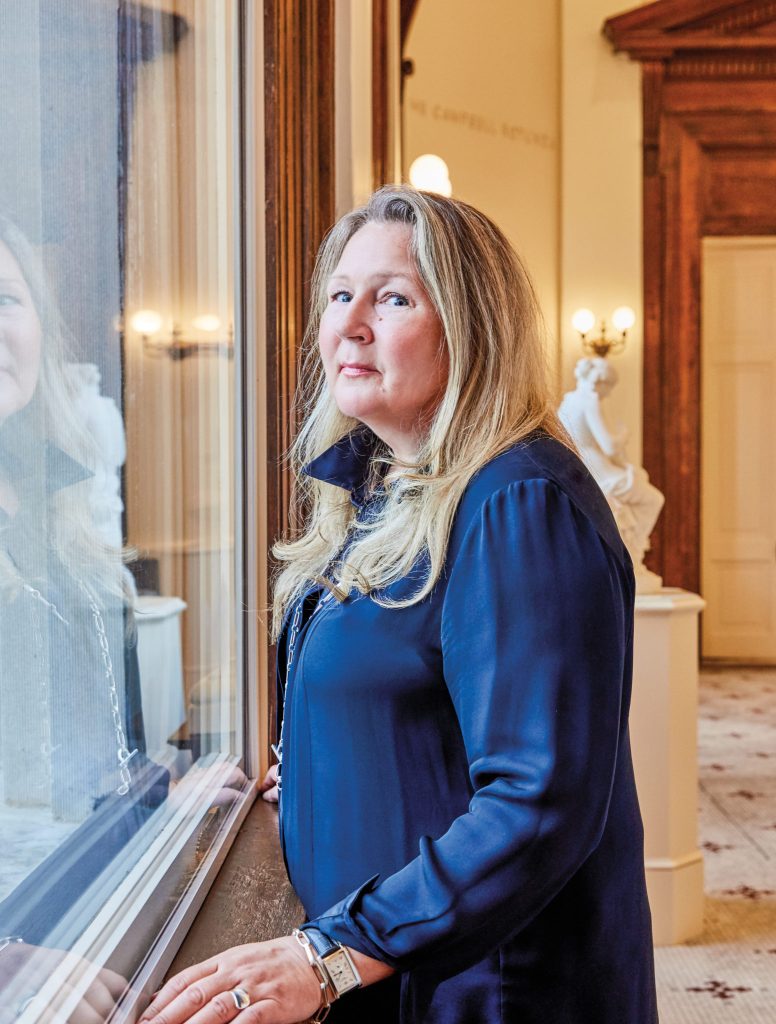
Katarina Fjording
Vice president, purchasing and manufacturing at Volvo Car Group
How She Got There: A native of Gothenburg, Sweden, Fjording came to Charleston in 2015 to oversee the building of Volvo’s manufacturing plant.
Why Charleston? “You can put yourself almost anywhere in business today and get the incentives, the land. They want your business. But what really set Charleston apart was the people. This is a very business-forward community. It’s not some sleepy Southern town. There are a lot of affluent people here who also do business elsewhere.”
How She Gives Back: Fjording has quickly become a contributor to the Charleston community, working with nonprofits such as the Tri-County Cradle to Career Collaborative, which aims to improve educational outcomes for disadvantaged children. And she’s become a member of an informal women’s network in town. “I call them the power ladies,” she says. “You appreciate their advice and what they have done and where they are today. And they do it with elegance. It’s not cutthroat.”
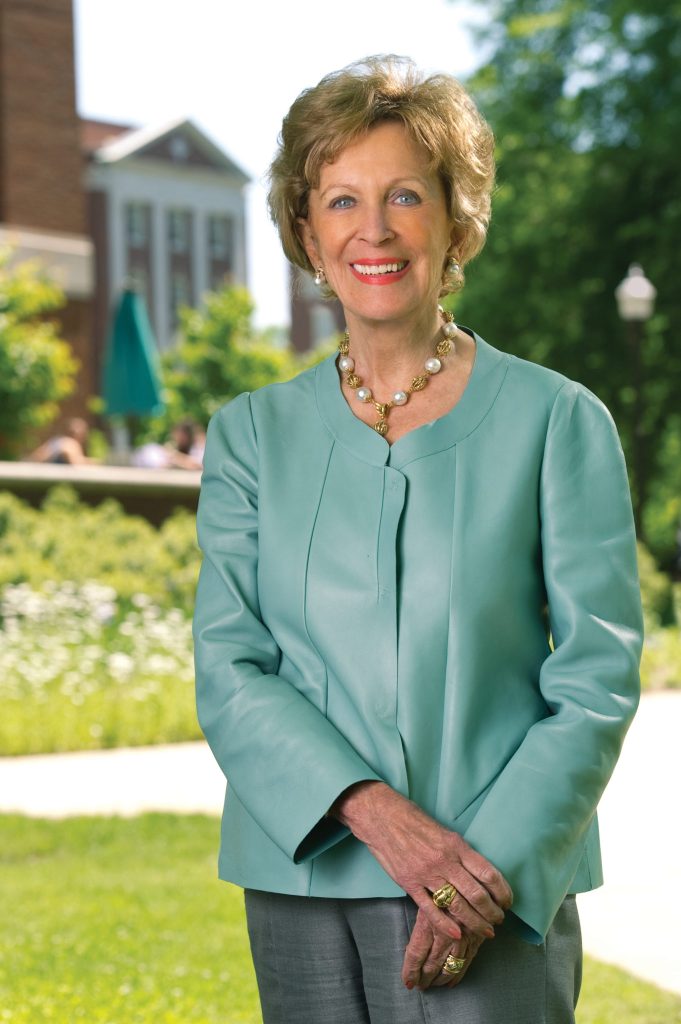
Martha Ingram
Chairman, Ingram Industries, a privately held, Nashville, Tenn.-based company with revenues of $2.2 billion in 2017
How She Got There: “I spent the first 23 years of my life in Charleston, other than college. When my mother died, she left me a house on Meeting Street. It’s my home away from home.”
Why Charleston? “Part of the reason is because of the welcoming tone that I get there. If you’re from Charleston, there’s always the feeling of, ‘Oh, I know you’re going to be moving back someday.’”
How She Gives Back: Ingram has fundraised for Ashley Hall, the all-girls private school in Charleston that she attended. And after serving on the board of Charleston’s renowned Spoleto Festival, she spearheaded the campaign for a new, $142 million Gaillard Center, the home of the Charleston Symphony Orchestra.
